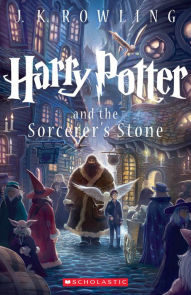
Fabrication. Invention. Make believe. No matter what we call it, fiction is an integral part of society. Everywhere in the world, stories help people learn morals and explore new lands – whether by books or by tales passed down through generations. These are more than just trivial means of passing the time. Stories have the ability to make one laugh, cry, jump up and down or yell with frustration. Over time they have shaped opinions and viewpoints, sometimes leading to dramatic shifts in cultural beliefs.
One of the most current examples of fiction influencing reality has to do with two seemingly unrelated subjects: the world-renowned series Harry Potter and Donald Trump. Diana Mutz, a political science professor at the University of Pennsylvania, conducted a survey involving 1,200 people and discovered that those who have read the adventures of Harry are more likely to disagree and dislike the Republican presidential candidate.
Many of J.K. Rowling’s themes deal with a tolerance of the underdogs. The underpaid and overworked Weasleys, Muggle-born Hermione Granger, and the oppressed house elf Dobby are all examples of this. The Dark Lord, Voldemort, has a deep and murderous disdain for all of Harry’s friends and has no problem killing those he deems unworthy or threatening. Although Donald Trump hasn’t gone on a rampage with a killing curse on his fingertips… yet – he has made propositions and statements that contradict the themes of tolerance presented in the novel, like banning all those of Muslim faith from the United States and publicly mocking Serge Kovaleski, a disabled reporter with a joint disease. Those who read, not watch, Harry Potter feel the effect brought on by the figment of one woman’s imagination.

To Kill a Mockingbird by Harper Lee follows a similar pattern. Published in 1960, the author intended the story to be one of love and family. It has become a classic that takes an unapologetic look at racial inequality in the south. A man convicted of a crime he did not commit – even in the face of overwhelming evidence – due only to his skin color, shocks readers today. The novel had a heavy impact on the Civil Rights Movement. Again, why did a make believe story affect people in such a way?
Guy de Maupassant, a French writer known for his skill in short stories, once said, “Words dazzle and deceive because they are mimed by the face. But black words on a white page are the soul laid bare.” Maupassant is on to something. Humans are incredibly stubborn and they hold onto their opinions like rafts in an ocean. Therefore, it is difficult to change someone’s mind when it is already made up, for they will argue and press and attempt to entice you to their side.
Stories are different though. A book in a lap may say something one disagrees with. A person can argue and deny it all they want, but it will not rearrange its words for them, or admit that they are right. It will sit there, remaining as it were when they first open it, unflinching in its opinion. And since they know it will not change, that it is an inanimate object, they do not bother to argue. They just read and feels for the characters, loves those who stand with them, and hates those who oppose them. Whether the person wants them to or not, the story’s morals affect them. It is in that way that they influence people’s lives.




































Ryan Ball • Nov 7, 2016 at 12:28 PM
this article was pretty rad yo, I really enjoyed the point you made about TKAM
Merritt • Nov 7, 2016 at 12:28 PM
Great writing Riley! I always love the way you word things 🙂 Totally agree with everything in this.
Carter Ciesluk • Nov 7, 2016 at 12:19 PM
I love the connections of the election to wondrous books that we have read in the past.
Eric Linthwaite • Nov 7, 2016 at 8:29 AM
trump = dark lord – now that’s funny 🙂